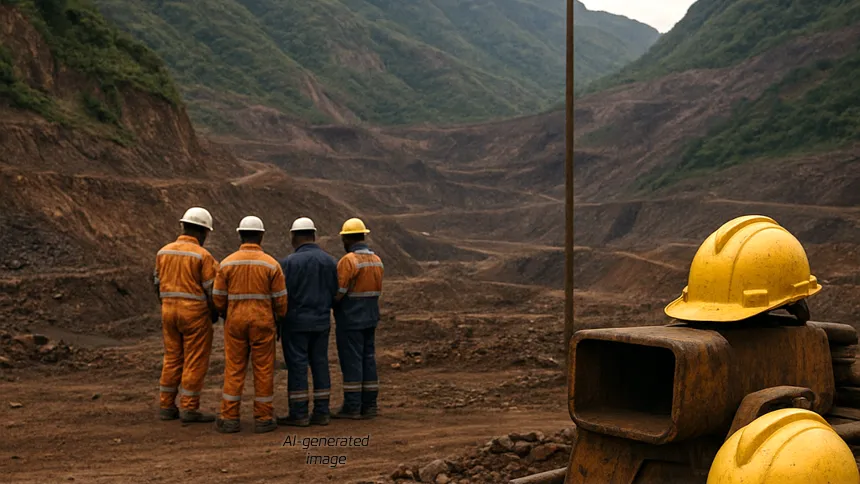Fatal Accident Halts Simandou Iron Ore Mine in Guinea

A fatal accident halts Guinea’s Simandou iron ore project, prompting safety reviews at one of Africa’s largest and most critical mining sites.
A tragic accident at the Simandou iron ore project in Guinea has once again cast a shadow over one of Africa’s most ambitious mining developments. Winning Consortium Simandou (WCS), the operator of Blocks 1 and 2 of the massive deposit, has suspended all operations following the deaths of three foreign workers in a worksite incident. The company has initiated a full investigation into the circumstances surrounding the accident and pledged to implement a comprehensive review of its health and safety protocols before resuming activity.
This marks the second fatality-related suspension at Simandou in less than two months and raises serious concerns about workplace safety at what is slated to become the world’s largest new iron ore mine. Since November 2023, at least 14 deaths have been recorded at the site, highlighting systemic safety challenges across a project that has drawn global attention for its scale, complexity, and economic significance.
Simandou, home to an estimated 2.4 billion tonnes of high-grade iron ore (averaging 65% Fe), is divided into four development blocks. WCS operates Blocks 1 and 2, while Rio Tinto and Chinalco jointly control Blocks 3 and 4. Once operational, the integrated project is expected to produce 120 million tonnes of iron ore per year, supported by a 600-kilometer railway linking the mountainous mine site to a new deep-water export port on Guinea’s Atlantic coast. The scale of this venture positions it as a potential game-changer for Guinea’s economy, promising to generate thousands of jobs, modernize transport infrastructure, and significantly boost export revenues.
However, the recurring fatalities highlight the tension between rapid development and the enforcement of rigorous occupational safety standards. Mining analysts have warned that the sheer pace and scale of construction at Simandou, combined with its mountainous terrain and challenging logistics, pose elevated operational risks. For the Guinean government, which regards the project as a cornerstone of national economic growth, ensuring the well-being of workers has now become an urgent priority.
WCS’s decision to halt operations demonstrates a recognition of the need for stronger safety governance and worker protection frameworks. It also offers an opportunity to reset operational standards across all Simandou partners, whose collective success depends on maintaining public and investor confidence.
In the broader context, this tragedy serves as a sobering reminder that Africa’s mega-mining projects must balance ambition with accountability. As Guinea pursues industrialization through its rich mineral endowment, ensuring sustainable and safe mining practices will be critical to protecting lives, preserving reputational integrity, and securing long-term socio-economic benefits for its people.
Our deepest condolences go to the families, colleagues, and communities affected by this devastating event. May the departed rest in peace, and may their loss serve as a catalyst for stronger safety culture across Guinea’s mining industry.
Mini-Glossary
- Winning Consortium Simandou (WCS): A multi-national consortium developing Blocks 1 and 2 of Guinea’s Simandou iron ore project.
- Fe (Iron Content): A measure of iron concentration in ore; higher Fe percentages indicate higher-quality material.
- Health and Safety Protocols: Procedures designed to minimize risks and protect workers from harm in industrial environments.
- Occupational Safety: The discipline focused on preventing workplace injuries and fatalities through training, equipment, and policy enforcement.
- Deep-Water Port: A harbor capable of handling large cargo ships, essential for exporting bulk commodities such as iron ore.
